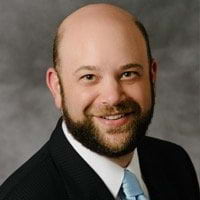Should I Register As A Mortgage Broker To Sell My House?
The Dodd-Frank Act is comprehensive legislation that arose out of the Great Recession and mortgage meltdown that began in 2008. The Dodd-Frank Act created the Consumer Financial Protection Bureau (CFPB) to enforce new and existing lending regulations designed to protect consumers. As of January 10, 2014, all residential mortgage transactions are regulated by the Dodd-Frank Act and the CFPB.
The CFPB’s new Loan Originator Compensation Rule now includes anyone making an extension of credit or offering or negotiating loan terms, including private parties who sell their home to a tenant, friend, family member or other person for some term of payments over time, known as “seller financing” or an “agreement for deed.”
Violation of the Loan Originator Rule could bring some harsh penalties, including $5,000 per violation per day, $25,000 per violation per day for a “reckless” violation, and up to $1 million per violation per day for a “knowing violation.” Other penalties may include rescission of the loan, refund of monies paid, return of real property, disgorgement of fees, monetary damages and “other relief.”
There are exclusions to the Loan Originator Rules, however. The CFPB has no oversight over extensions of credit primarily for business, commercial or agricultural purposes, or an extension of credit to a company, corporation, estate or trust (someone other than a natural person).
Seller financers may qualify for one of two exclusions, the one-property exclusion and the three-property exclusion.
The one-property exclusion requires that:
-
The lender is a natural person, estate, or trust and provides seller financing for only one property in any 12-month period; and
-
The lender owned the property securing the financing; and
-
The lender did not construct, or act as a contractor for the construction of a residence on the property in the ordinary course of business; and
-
The financing must: (1) have a repayment schedule that does not result in negative amortization, and (2) have a fixed interest rate or an adjustable interest rate that resets after five or more years.
The three-property exclusion requires that:
-
The lender is any type of entity and provides seller financing for three or fewer properties in any 12-month period; and
-
The lender owned the property securing the financing; and
-
The lender did not construct, or act as a contractor for the construction of a residence on the property in the ordinary course of business; and
-
The financing must: (1) be fully amortizing, (2) be financing the lender has determined in good faith the consumer has a reasonable ability to repay, and (3) have a fixed interest rate or an adjustable interest rate that resets after five or more years.
Although this article focuses on seller financers, the Loan Originator Rules allow a private lender or seller financer to work with a licensed, Regulation Z-compliant loan originator such as a mortgage broker in order to avoid any penalties or compliance issues.
Finally, the Florida Realtors / Florida Bar (FAR/BAR) Residential Contract was revised effective September 2014 to address, amongst other things, seller financing and issues. Rider C., Seller Financing, was revised from one to two pages and provides a summary of the Dodd-Frank Act, together with a condensed summary to allow sellers to determine if they qualify for one of the two exemptions.
For more information on selling or buying a home, using seller financing, or to schedule a free initial consultation to discuss your options, please contact our firm at: 727-261-0224 or email me at shawn@yesnerlaw.com.
Shawn M. Yesner, Esq., is the founder of Yesner Law, P.L., a Tampa-based boutique real estate and consumer law firm that helps clients eliminate debt by providing options, so they can live the lifestyle of their dreams. We assist clients with the sale and purchase of real property, Chapter 7, Chapter 13, bankruptcy, liquidation, reorganization, foreclosure defense, debt settlement, landlord/tenant issues, short sales, and loan modifications in Tampa, Westchase, Oldsmar, Clearwater, Pinellas Park, Largo, St. Petersburg, and throughout the greater Tampa Bay area.




